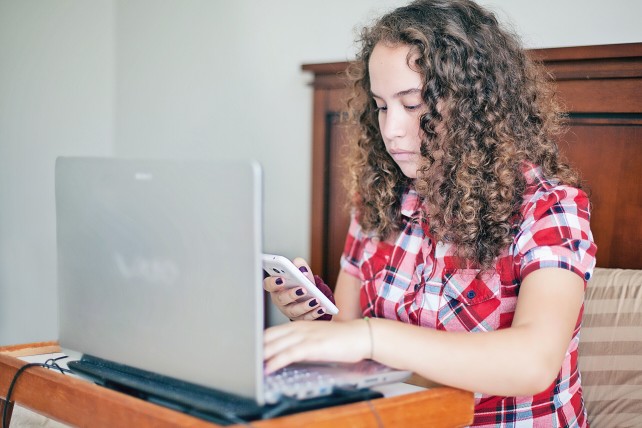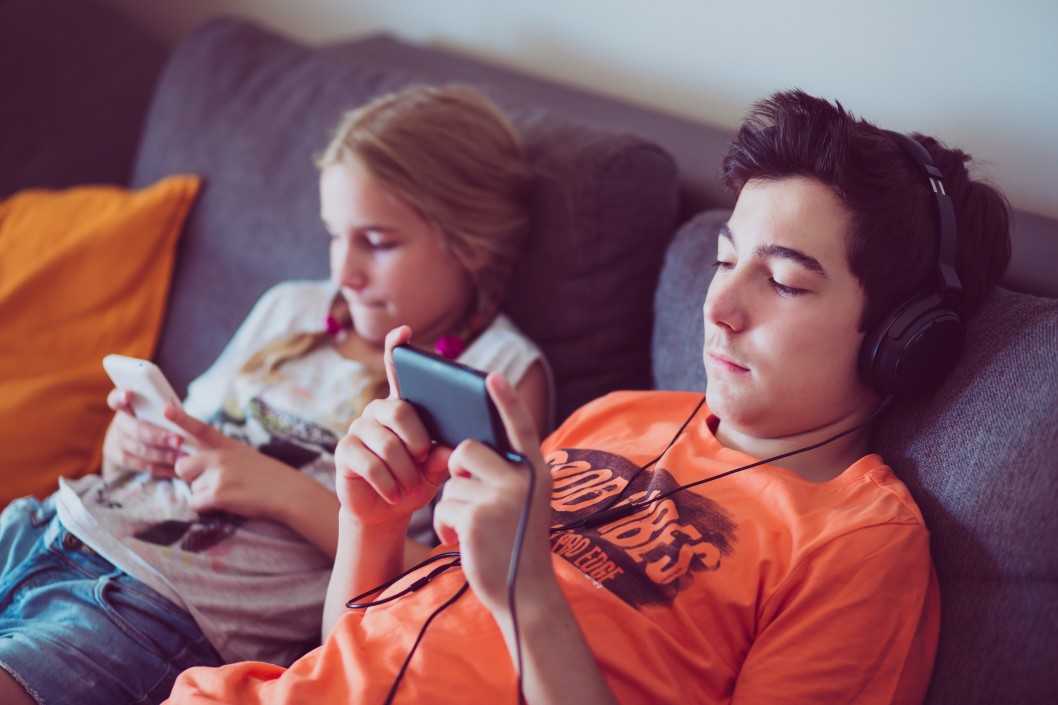 Emotional outbursts. Lost sleep. These are signs that your kids are spending too much time with digital devices. Here’s what you can do about it.
Emotional outbursts. Lost sleep. These are signs that your kids are spending too much time with digital devices. Here’s what you can do about it.
1. Pay attention to your children’s emotional relationship with screens, not just how much time they are spending with them.
The Problematic Media Use Measure is a questionnaire you can use to help determine if your school-age child has a problem with screens. It asks about issues such as preoccupation (“Screens are all my child seems to think about”) and deception (“My child sneaks using screens”).
2. Don’t just make technology rules based on time.
Parental controls and posted schedules can be useful, but they don’t work without getting buy-in from your kids. That takes talking — and listening.
3. Do guard bedtimes and mealtimes.
Small screens near bedtime interfere with sleep, and eating while watching can contribute to obesity. Put devices away during meals and take them away at night.
4. Don’t expect taking away the phone to solve all your family’s problems.
Researchers say the relationship between mental health, problem behaviors and media use is complex and multi-dimensional. Teens use media to connect with their friends, self-soothe and even promote wellness. If you try to work with them to limit media use, you must also make sure that they have other ways to meet those needs.
5. Mentor your kids; don’t just monitor them.
Kids’ media preferences are part of who they are, so if we want to get to know our kids better, we can’t just condemn their media use, we have to try to understand it, too.
Resources:
- Devorah Heitner, author of Screenwise: Helping Kids Thrive (and Survive) in Their Digital World, gave us advice for stopping the fights between parents and kids over screens and for striking a healthier balance with technology.
- Technology overuse ranked as the No. 1 fear parents of teenagers in a national survey by the Deseret News and the Center for the Study of Elections and Democracy at Brigham Young University in 2018.
- On the subject of screens and sleep, here’s one of many studies on the effect of blue light on sleep, and another on the impact of timing, environment and the content on sleep.
Excerpted from “5 Strategies For Coping With Screen-Obsessed Kids” on NPR‘s Life Kit. Read the full article for additional details and resources.
Listen to the podcast, below:
Source: NPR | 5 Strategies For Coping With Screen-Obsessed Kids, https://www.npr.org/2019/06/20/734532122/the-darker-side-of-screen-time | © 2021 npr
If you have concerns about your child or teen, CHC Care Coordinators can arrange a free 30-minute consultation so you can explore options with an expert. We invite you to call or email us at 650.688.3625 or careteam@stage.chconline.org to set up an initial Parent Consultation appointment. CHC teletherapy services are available now.





